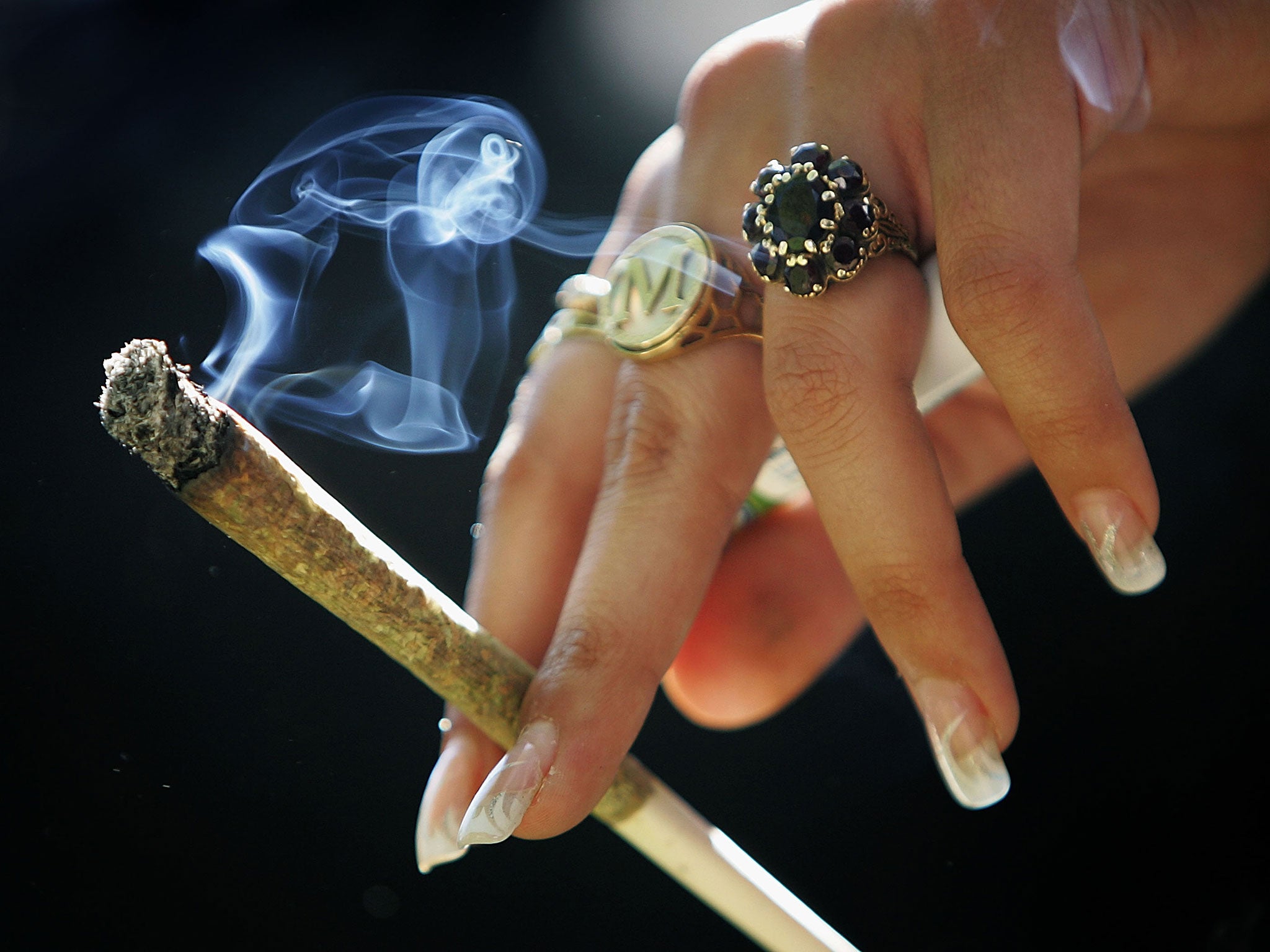Cannabis myths: Seven rumours about legalisation, crime and addiction debunked
'There is no conclusive evidence that the drug effects of marijuana are causally linked to the subsequent abuse of other illicit drugs'

Myth: Cannabis is a dangerous drug
“A recent expert-led comparison of the health and social harms to the user and to others caused by the most commonly used drugs in the UK showed alcohol to be more than twice as harmful as cannabis to users, and five times as harmful as cannabis to others.”
David Nutt and Ruth Weissenborn, in the Journal of Psychopharmacology.
Myth: Cannabis use leads to harder drugs
“Not surprisingly, most users of other illicit drugs have used marijuana first… In the sense that marijuana use typically precedes rather than follows initiation of other illicit drug use, it is indeed a "gateway" drug. But because underage smoking and alcohol use typically precede marijuana use, marijuana is not the most common, and is rarely the first, "gateway" to illicit drug use.
“There is no conclusive evidence that the drug effects of marijuana are causally linked to the subsequent abuse of other illicit drugs. “
Myth: Legalisation of cannabis leads to more crime
Early evidence from Colorado and Washington suggests violent crime and property crime dropped in the year after retail marijuana businesses opened in 2014.
A prior academic study, federally commissioned in 2012, examined “whether the density of medical marijuana dispensaries is associated with crime”.
It concluded: “There were no observed cross-sectional associations between the density of medical marijuana dispensaries and either violent or property crime rates in this study.”
Myth: Cannabis is a highly addictive drug
While marijuana dependence is a growing problem, at least in the US, it actually “produces dependence less readily than most other illicit drugs”.
“Some 9 percent of those who try marijuana develop dependence compared to, for example, 15 percent of people who try cocaine and 24 percent of those who try heroin,” a study found.
That also compares to NHS estimates suggesting 9 per cent of the entire UK male population (and 4 per cent of British women) show signs of alcohol dependence.
Myth: Cannabis smokers tend to be heavy users
According to a fairly comprehensive 2012 tome entitled Marijuana Legalization: What Everyone Needs to Know, around one-third of cannabis users report doing so for 10 days or fewer in the year, while up to 50 per cent said they had done so for 12 days or fewer in their lifetime.
It is nonetheless true that a small number of users do so heavily, accounting for a large proportion of all cannabis consumed. The book’s authors quote household survey data in the US as putting this at 20 per cent of users – six million of the country’s 30 million users – who say they smoke daily or almost-daily.
Myth: Legalisation will lead more teenagers to take up cannabis use
“Our results are not consistent with the hypothesis that the legalization of medical marijuana caused an increase in the use of marijuana and other substances among high school students,” found a University of Washington study.
“[In fact] drawing on NSDUH data for the years 2002 through 2009, Harper et al. (2012) found that legalization was associated with a small reduction in the rate of marijuana use among 12- through 17-year-olds.”

Myth: Cannabis is not bad for you
A study compared long-term, heavy cannabis users (individuals aged 30-55 who had smoked cannabis a mean of 18000 times and a minimum of 5000 times in their lives) to an age-matched group of subjects who had smoked at least once but no more than 50 times in their lives.
It found “no significant differences between the two groups on reported levels of income and education in their families of origin”. “However, the heavy users themselves reported significantly lower educational attainment and income than the controls, even after adjustment for a large number of potentially confounding variables,” the study says.
“Both objective and self-report measures suggest numerous negative features associated with long-term heavy cannabis use.”
The study said more than two-thirds of the heavy users said they felt cannabis had a “negative effect” on their quality of life, cognition and other factors – yet continued to smoke anyway.
Join our commenting forum
Join thought-provoking conversations, follow other Independent readers and see their replies
Comments
Bookmark popover
Removed from bookmarks